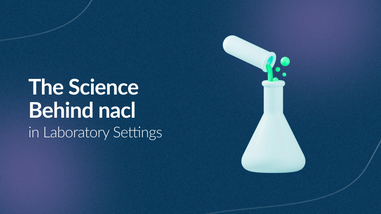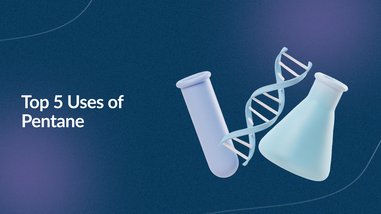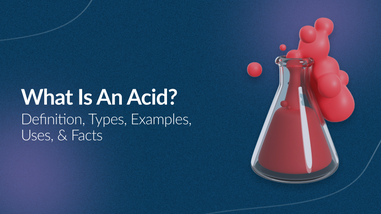- No products in the cart.
Sodium hypochlorite is a versatile chemical with a wide range of applications. It is most commonly known as bleach, and is used in households and businesses around the world for cleaning and disinfection. Sodium hypochlorite is also used in water treatment, where it helps to remove contaminants and make water safe to drink.
In this blog post, we will explore the power of sodium hypochlorite and its applications in cleaning, disinfection, and water treatment. We will also discuss the safety precautions that should be taken when using sodium hypochlorite.
What is Sodium Hypochlorite?
Sodium hypochlorite is a chemical compound with the formula NaOCl. It is a clear, colorless liquid with a strong odor. Sodium hypochlorite is a powerful oxidizing agent, which means that it can react with other substances to produce oxygen. This oxidation reaction is what makes sodium hypochlorite effective for cleaning and disinfection.
Sodium Hypochlorite in Cleaning
Sodium hypochlorite is a popular household cleaner because it is effective at killing bacteria, viruses, and fungi. It is also a good deodorizer, and can be used to remove stains from surfaces.
Sodium hypochlorite can be used to clean a variety of surfaces, including countertops, floors, appliances, and toilets. It can also be used to clean laundry and to disinfect swimming pools.
When using sodium hypochlorite for cleaning, it is important to dilute it according to the instructions on the product label. Sodium hypochlorite can be corrosive, so it is important to wear gloves and eye protection when using it.
Sodium Hypochlorite in Disinfection
Sodium hypochlorite is also a powerful disinfectant. It can be used to disinfect surfaces, water, and medical equipment.
Sodium hypochlorite is effective against a wide range of pathogens, including bacteria, viruses, and protozoa. It is also effective against spores, which are the dormant forms of bacteria and fungi.
Sodium hypochlorite is used to disinfect surfaces in hospitals, clinics, and other healthcare settings. It is also used to disinfect water in swimming pools, spas, and water treatment plants.
Food Processing and Sanitation
The food processing industry faces stringent hygiene requirements to ensure food safety and prevent contamination. Sodium hypochlorite is commonly used in food processing plants for its potent sanitizing properties. It effectively eliminates bacteria, molds, and other pathogens that may compromise the quality and safety of food products. Sodium hypochlorite solutions are used to sanitize food preparation surfaces, utensils, processing equipment, and storage areas. Its ability to break down organic matter and disinfect surfaces makes it an invaluable tool in maintaining high levels of hygiene in the food industry.
Municipal Water Treatment
Water treatment facilities utilize sodium hypochlorite as a primary disinfectant to ensure the safety and quality of drinking water. Sodium hypochlorite effectively destroys bacteria, viruses, and other pathogens present in the water supply, minimizing the risk of waterborne diseases. It is commonly used in the final stage of the water treatment process, where it acts as a residual disinfectant to maintain water quality as it flows through the distribution system. The controlled addition of sodium hypochlorite helps protect the public from harmful pathogens and ensures that tap water meets stringent safety standards.
Swimming Pool Maintenance
Sodium hypochlorite is widely used in swimming pool maintenance due to its effective disinfection properties. It serves as a primary sanitizer in pool water, eliminating harmful bacteria, algae, and other microorganisms that can pose health risks to swimmers. Sodium hypochlorite solutions, often referred to as liquid chlorine, are added to the pool water to maintain proper disinfection levels. Regular monitoring and adjustment of sodium hypochlorite levels help ensure a safe and enjoyable swimming experience while reducing the risk of waterborne illnesses.

Wastewater Treatment
In wastewater treatment plants, sodium hypochlorite is employed as a disinfectant in the final stage of the treatment process. After removing solids and organic matter, the treated wastewater undergoes disinfection to eliminate any remaining pathogens. Sodium hypochlorite is added to the water to effectively destroy bacteria, viruses, and other microorganisms before the treated water is discharged back into the environment. Its disinfecting properties play a crucial role in protecting public health and preventing the spread of waterborne diseases.
Safety Precautions for Sodium Hypochlorite
Sodium hypochlorite is a powerful chemical, and it is important to take safety precautions when using it. Here are some safety tips for using sodium hypochlorite:
-
Use Personal Protective Equipment (PPE): When handling sodium hypochlorite, wear appropriate PPE, including gloves, goggles, and protective clothing, to protect against contact and potential splashes.
-
Proper Dilution: Follow recommended guidelines for diluting sodium hypochlorite solutions to achieve the desired concentration for specific applications. Use accurate measuring tools and follow safety data sheets for guidance.
-
Ventilation: Ensure proper ventilation in areas where sodium hypochlorite is being used to prevent the buildup of fumes and promote a safe working environment.
-
Storage: Store sodium hypochlorite in a cool, dry, and well-ventilated area, away from direct sunlight, heat sources, and incompatible materials. Follow local regulations for storage and consider using appropriate safety cabinets or containers.
-
Spill Management: Develop spill response protocols and have appropriate spill control measures in place. If a spill occurs, promptly contain and clean it up following established procedures and wearing the necessary protective gear.
-
Proper Disposal: Dispose of sodium hypochlorite and any waste materials according to local regulations. Follow recommended procedures and avoid mixing with incompatible substances.
Conclusion
Sodium hypochlorite's versatility and effectiveness in cleaning, disinfection, and water treatment applications have made it an invaluable tool in various industries. From healthcare facilities and food processing plants to municipal water treatment facilities and swimming pool maintenance, sodium hypochlorite plays a crucial role in promoting cleanliness, preventing contamination, and ensuring public health and safety. However, it is important to follow safety considerations and best practices to handle and use sodium hypochlorite safely. By understanding its power and implementing proper protocols, we can harness the benefits of sodium hypochlorite while maintaining a safe working environment and protecting our communities.
For over 40 years, Lab Pro Inc. has been committed to delivering highest quality chemicals, lab supplies, hand tools, lab equipment, reagents, distance learning kits, and cleanroom PPE apparel. Renowned by global medical device companies and laboratories, we ensure exceptional quality in every product. Contact us online or call 888-452-2776 to learn more. Discover top-notch lab supplies and elevate your experiments today!












































